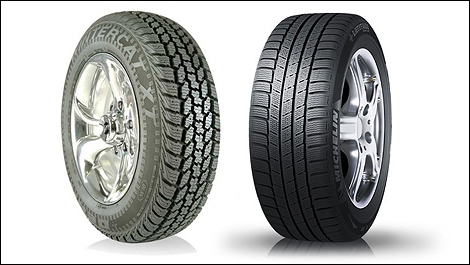Oct
26th
Stay connected Subscribe to our RSS feed
 |
In order to help you make the best choice for your vehicle, the team at PMCtire.com brings you a series of articles on winter tires with lots of useful advice and pointers.
Here are the four main questions that you need to answer to make an educated decision:
- What type of roads do you drive on?
- How many winters will you use your vehicle for?
- How many kilometres do you travel during winter?
- How much are you willing to spend on winter tires?
Choosing a winter tire based on the type of roads you drive on
You must consider the climate you live in since road maintenance, temperature and precipitation levels substantially vary from one region to another.
 |
City driving
Driving in the city usually involves a mix of snow and ice. Further up north, it's more snow than ice. The wise thing to do is to choose a versatile tire (snow and ice), or a winter tire that provides superior grip in the snow, in order to ensure good performance in slush and deep snow. Versatile winter tires feature thin blades and sipes as well as properly spaced tread blocks allowing adequate traction in the snow.
Highway driving
Highways are usually clear of snow, and many people drive on them. However, icy conditions frequently occur. In this case, you should look for a winter tire that's mainly designed to tackle ice. This type of tire will provide good grip in tight, ice-covered corners whereas a snow tire would give you the impression of skating on a rink.
Byroad driving
Byroads and country roads are more regularly covered in snow than highways and major boulevards. At the same time, conditions vary significantly. Therefore, if you spend most of your time on small byroads, opt for a versatile tire that offers solid traction both in the snow and on ice. You may also want to consider a studded tire for more extreme and diversified conditions, or a snow tire if your local roads are more often covered in white powder than frozen water.
Choosing a winter tire based on your vehicle's longevity, the distance travelled during winter, and your budget
In general, entry-level winter tires are less expensive, but also less durable and therefore more likely to need a replacement after a short period. If you plan to keep your vehicle for only a year or two, don't travel a whole lot, or have a limited amount to spend, these tires probably represent a smarter choice. On the other hand, if you've recently purchased a brand new car and plan to keep it for at least three years, or drive more than 10,000 kilometres during the cold season, a higher-end winter tire with superior durability proves to be a profitable investment. It will prevent you from switching from one cheap tire set to another during that time.
 The latest auto news, reviews, prices, product and vehicle releases.
The latest auto news, reviews, prices, product and vehicle releases.